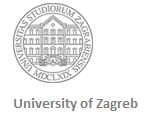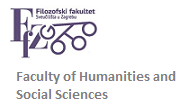Home » 7. semestar – SMJER LINGVISTIKA
Category Archives: 7. semestar – SMJER LINGVISTIKA
Syntactic Theories
Course title: Syntactic Theories Course coordinator: Professor Irena Zovko Dinković Instructor: Professor Irena Zovko Dinković Status: elective ECTS credits: 6 Semester: 1st or 3rd (winter) Enrollment requirements: – Objectives: To introduce the students to major syntactic theories and approaches from the beginning of the 20th century to the present, and teach them about various ways […]
Lexicology and Lexicography
Course title: Lexicology and Lexicography Summer term ECTS 5 points Course convenor: Professor Milena Žic Fuchs Lecturer: Dr. Janja Čulig Suknaić, postdoc Language: English Term: First term of graduate studies Requisites: Attending this course does not require any requisites, except being enrolled in the term in which the course is given. Course format: 2 lecture […]
Lexicology and Lexicography (archive)
Course title: Lexicology and LexicographySummer term 2012-2013ECTS 5 pointsCourse convenor: Professor Milena Žic FuchsLecturer: Vlatko BrozLanguage: EnglishTerm: First term of graduate studiesRequisites: Attending this course does not require any requisites, except being enrolled in the term in which the course is given.Course format: 2 lecture classes and 2 seminar classes a weekObjective: Gaining an […]
Academic Writing 1
Course title: Academic Writing Instructor: Dr. Alexander D. Hoyt, senior lector (lecturer in foreign languages) Status: mandatory ECTS credits: 5 Semester: 1st (winter) Enrollment requirements: enrollment in the first semester. Course description: 4 hours of seminar-type instruction per week. Students will be introduced to, and required to write, various types of texts: personal letters, business […]



